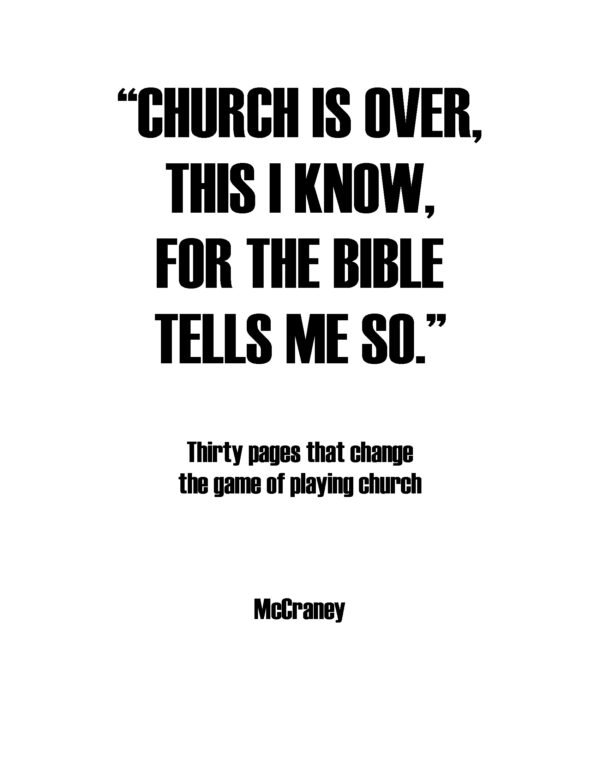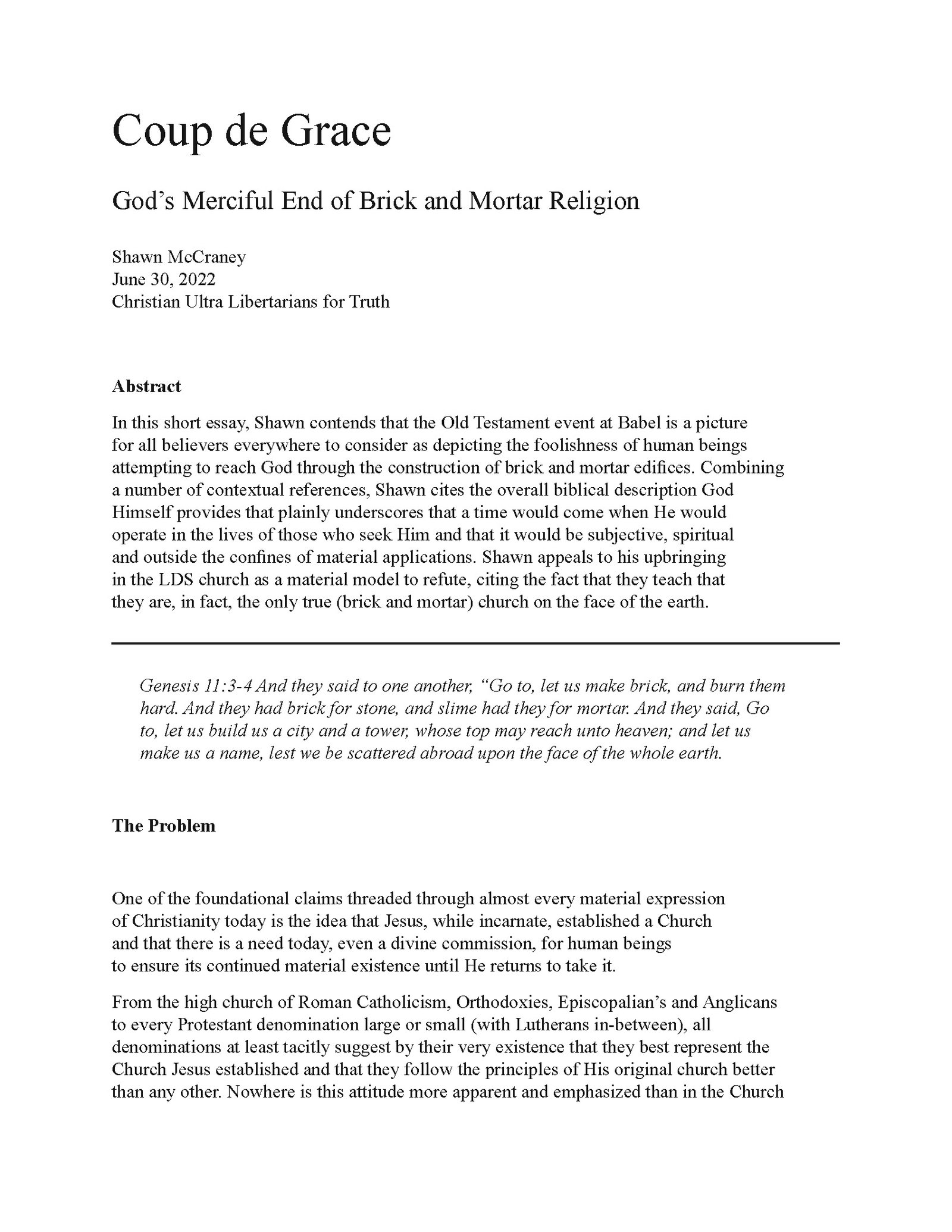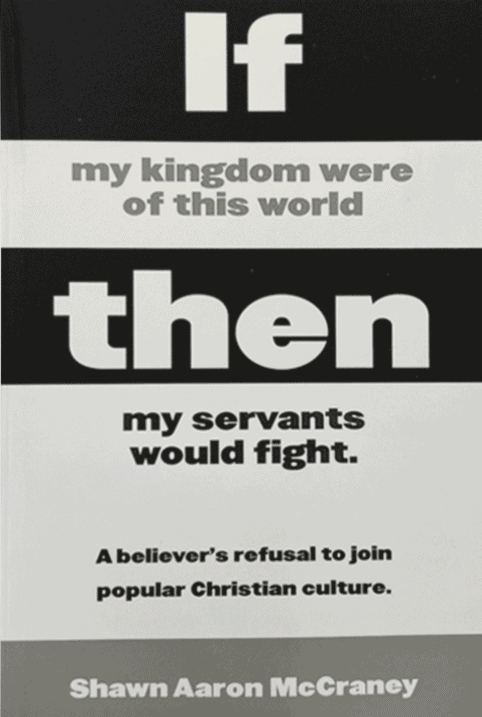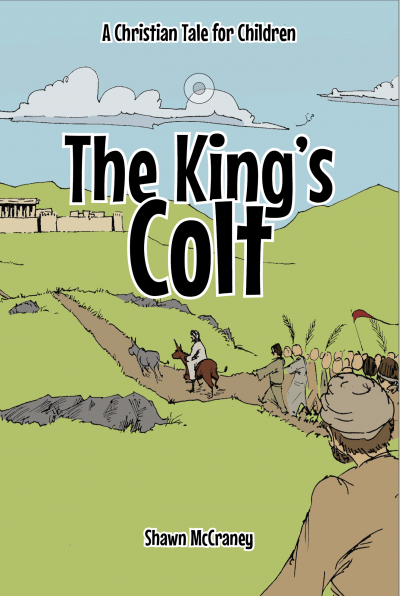
Church Is Over, This I Know, For The Bible Tells Me So
$4.95
Thirty pages that change the game of playing church.
Church Is Over, This I Know, For The Bible Tells Me So is a short overview summary of what fulfilled eschatology is, how it is the “right story”, and what it means for church today. It is divided into 5 sections: The Right Story, A Day Was Coming, Before That Day Came, What Happened In That Day, and After That Day.
Here is a preview of the introduction:
Our lot in Christian ministry has been to test all things through searching through research. Our primary source of research is the Bible itself through which we test all things presented as truths to the Christian faith by challenging them through a contextual study of the written word and if we discover insights and supportive information to the contrary we change our minds – to the point of rejecting tradition – again, if a contextual reading of the Word supports it and if there exists viable alternatives to what has long been in place. As a result, we have, as a ministry, made some pretty bold statements relative to the sacred cows of Christianity with all of them having the ability to knock people backward if they are heard without any sort of context or explanation.
Our first open challenge, after an exhaustive study on afterlife punishment, was to plainly state that Sheol, hades, hell, Gehenna, and all the things said about them in scripture was, at one time of a limited duration and that in and through the victory of Jesus Christ over all things has since been cast into the Lake of Fire and destroyed. From this we maintain that today, the emissary of the Dark and tempter of the brethren, Satan, and his angels, have also been cast into the Lake of Fire that was specifically created for them and that all people are tempted today and drawn away by their own lusts and/or the Dark which is a much more powerful enemy to Light. (more can be read about this stance through our paper titled, Eternal Punishment). This result of our promoting this position was a fairly strong renunciation by the Evangelical community around us and their confirmational bias on the subject keeps them talking about Satan and threatening people with an eternity in hell. We love and receive them still but wish they would allow themselves eyes to see and ears to hear.
A second stance was against the man-made construction of the description of God called the Trinity. Our conclusions did not bring us to a place of denying the divinity of what was in Jesus of Nazareth as a man but to simply question the doctrine of three separate and distinct persons uncreated, co-equal and co-eternal that go by the names of God the Father, God the Son and God the Holy Spirit who collectively make up the one true Trinitarian God. We have produced numerous writings and online teachings that help explain our findings on the Trinity, but for our purposes here, we simply say to questioning souls what Paul succinctly wrote in 1st Corinthians 8:6, where it says
“But to us there is but one God, the Father, of whom are all things, and we in him; and one Lord Jesus Christ, by whom are all things, and we by him.
This led to an open and public confrontation by some local people and pastors (that we called the Inquisition) and we lost even more respect from the community of not only Evangelicals but also from the Catholics, Orthodoxy, Anglican and Lutheran communities as well. But we continue to love and receive all of them as bona-fide members of God’s family.
After spending over two years working through the Book of Revelation verse by verse, citing all the applicable Old Testament references and consulting the historical accounts from that age from secular historians like Tacitus, Cassius Deo, Seutonius, and Josephus, and also appealing to all that Jesus and the other apostles wrote, we now conclude the following without hesitation: that Jesus came back as promised in that day, with reward and destruction and this return culminated in the destruction of everything pertinent to that former age of material religion and introduced to the world the fullness of the New Covenant which is in the hands of the Spirit. This is the purpose and point of this book – to prove that brick and mortar religious appeals are over and that what we describe as taking its place is, in fact, “the best approach to Christianity on the face of the earth.”
When we said this, we were not saying we have the only approach to the faith on the face of the earth – quite the contrary – we are actually saying that all approaches of brick and mortar religion are equal and therefore acceptable to God irrespective of doctrine and practice because the all have the correct story wrong; that the faith has long been subjectively lived and experienced and not objectively demanded in any single formalized form or material fashion. This conclusion either fell on deaf ears or lit them on fire but we love them still and consider all attackers, nay-sayers and name-callers part of God’s family whom He loves.
In this end, this best approach can be re-written and summarized in the statement “Church is over and that we can prove it” or as the title of the book plainly states,
“Church is over this I know, for the Bible tells me so.”
Before going into our proofs, which this book seeks to articulate in a non-exhaustive manner, we also stand by the claim that when it comes to Christianity, “Nobody has all the facts, but at least we have the story right.”
That’s a pretty bold statement because it directly suggests that other expressions of the faith, Catholicism, Orthodoxy, Protestants and/or the Restorationist groups don’t have the story right. Hear us now – they don’t. And they never have. And the Bible itself proves this outright. But we love and receive all of them still, irrespective of doctrine, dogma, practice and errant history.
We realize that to the churched and to those who care more about continuity of strongly held beliefs and traditions that these finding will not matter all too much because when
it comes to matters of faith beliefs are far more persuasive than facts. And while we acknowledge that all systems of religious beliefs require faith, we seek to ferret out and test all the so-called evidences (scriptural and otherwise) that are esteemed as true and supportive of traditions and to retain only those that pass contextual scrutiny. Along the way, we too admittedly are force to step back and admi that, “even if someone has the story wrong, God has worked and must continue to be working on reaching people from wherever they stand.” If, however, you are someone interested in a factual representation of contextual biblical statements as a means to form your beliefs around better evidences that traditional teachings, read on.



